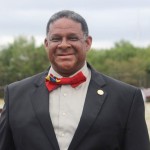
Senior columnist Dixon Igwe
A series of stories on why applying appropriate economic ideas, is the strongest route towards El Dorado, for the Virgin Islands
Now, once a government has decided upon its short, medium, and long term strategy, leading to realization of a national vision, economics is the tool and vehicle to get the country to that ‘’Promised Land.’’
Economics is at the core of governance. That is why most countries are managed by politicians advised by economists. Global finance is driven by economic theory and economic thinking.
Why is economics central to good governance? It is, because, economics is about the best way to manage scarce resources. Economics provides society with both macro and micro economic information, and appropriate statistical parameters, within which policymakers make decisions on everything, from social welfare, to security and defense.
Economics also attempts to guide governments and political leaders through the vast and tortuous maze of international debt management and the complex movement of financial capital between central banks, investors, and nations. Economics further advises society on bridging the gap between lenders and borrowers, and investors and investment requirements.
Ultimately economics is about obtaining the ‘’best bang for the buck.’’ Economics is about getting value for money. Economics is seeking the best social and economic return for the human effort and physical resources naturally found in an economy.
Scare resources – human and physical- are the raw material of governance. And how scare resources are managed decides whether a country will achieve its aims, objectives, and goals, which lead to a country’s vision and dreams.
So, what outcomes are desired by Virgin Islanders and residents? Outcomes are short, medium, and long term. And the reader can go back to Maslow and his Hierarchy of Needs, to determine desired outcomes.

Photo courtesy http://atlasarvand.com/
In a nutshell, residents want to live in peace and safety. Residents want to work for a living. Residents want business opportunity. Residents want good education and good health care.
Once the preceding needs are met, then needs higher up the pyramid are desired.
Residents want to travel, send their children to college and university, own homes, and go on holiday. Higher needs include the pursuit of leisure, personal passions, interests, and hobbies, and retiring with affordable healthcare and sustainable pensions.
The list is long. However, without a well managed economy the preceding goals for residents is ‘’pie in the sky.’’
There is more. The national vision is the key to meeting the desires of voters and residents. Vision is a great asset for politicians. But without a vision and goals, there is nothing to aim for. When there is no vision, governance drifts and enters into self contradiction. Projects are not properly factored into the developmental needs of the country. There is waste and mismanagement. When there is no vision there is no joint objective. There is no policy cohesion. There is no national purpose. The end is failure of governance, and even worse.
Where there is a national vision, and national goals and objectives, governance has direction. Politicians sing from a single song sheet. Businessmen are offered a road to travel based on that national vision. Economic and public planning has direction. Every citizen knows their place within the context of that national vision. Even the opposition has a benchmark and measure to gauge the performance of the men and women on the opposite governing benches.
The voter can tell over a number of years and milestones leading to the national vision, whether the government is meeting key objectives in a timely and sustainable manner.
On the other hand, a vision can become a double edged sword. If a vision has not been achieved after the date when it should have been delivered, then there are answers that must be given. Why was there failure? If the vision was sustainable through the budgeting process then where did the cash go? How was the cash spent, and why was the cash not spent on national priorities?
Economics gives the answers to all of these questions. Vision is the destination. Economics is the horse and cart.
Connect with Dickson Igwe on Facebook and Twitter
Dickson Igwe is an education official in the Virgin Islands. He is also a national sea safety instructor. He writes a national column across media and has authored a story book on the Caribbean: ‘The Adventures of a West Indian Villager’. Dickson is focused on economics articles, and he believes economics holds the answer to the full economic and social development of the Caribbean. He is of both West African and Caribbean heritage. Dickson is married with one son.


